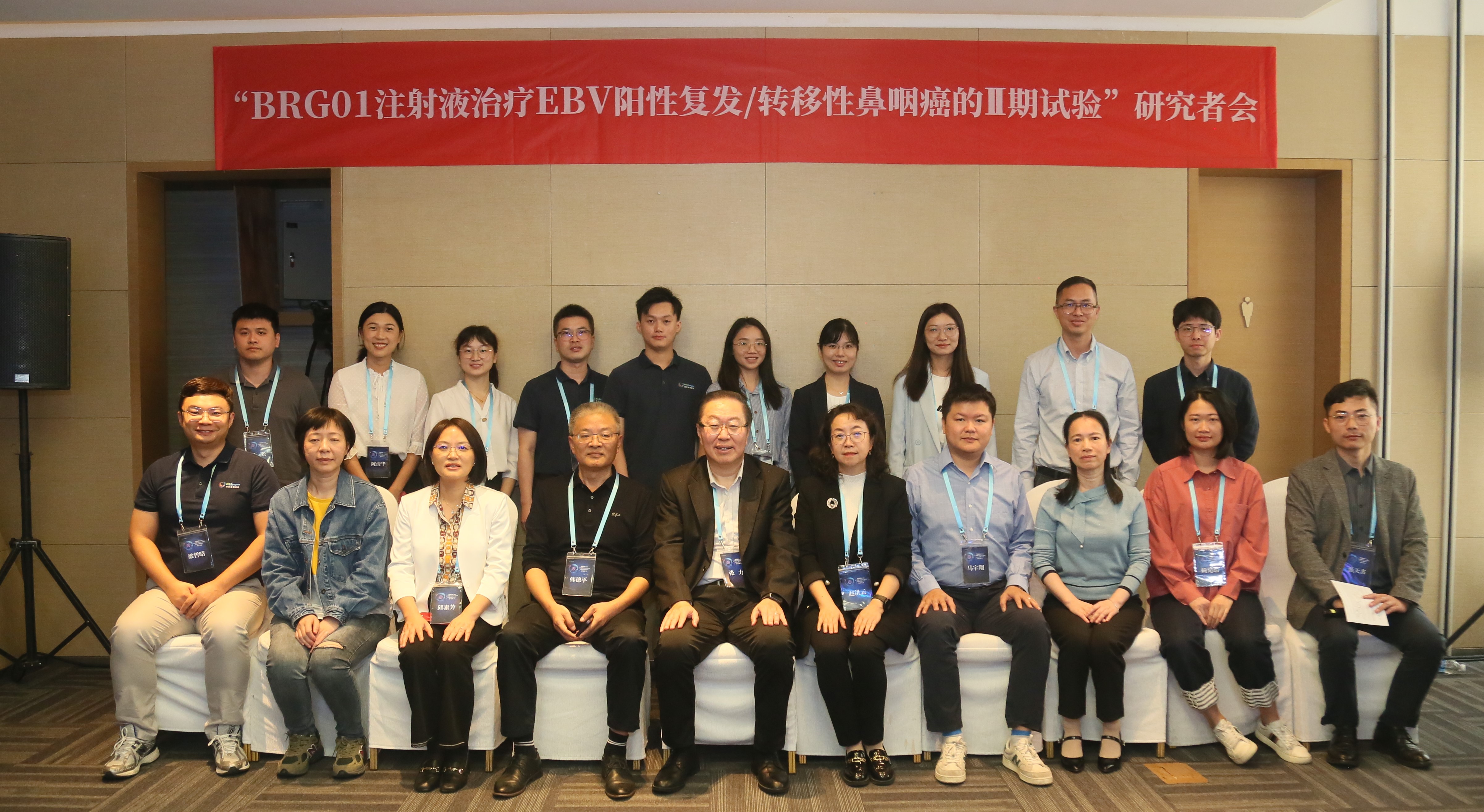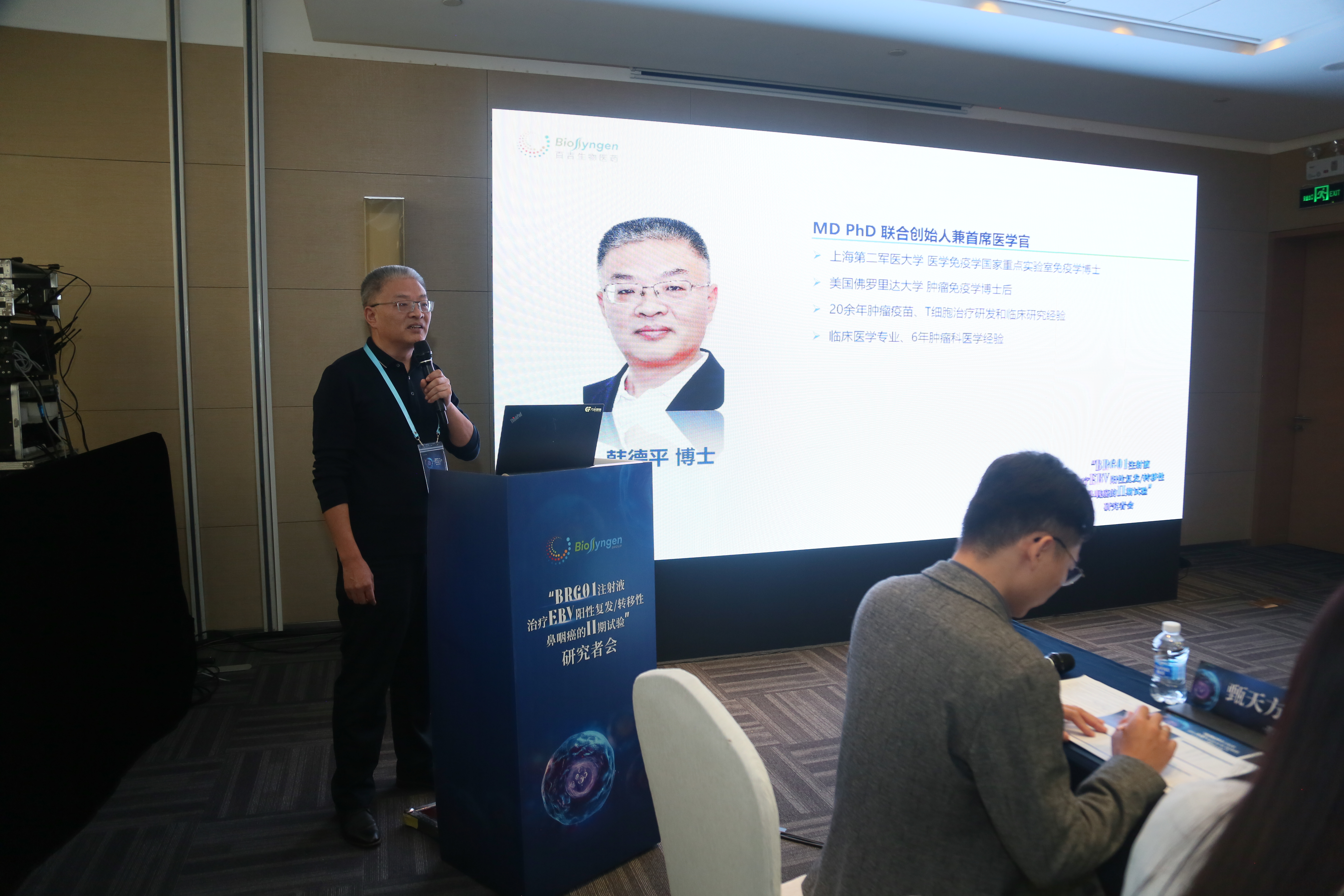Biosyngen Initiates Phase II Trial for BRG01, a Fourth-Generation Tumor Drug Addressing Targeted Toxicity
On November 10, 2024, Biosyngen held an investigator meeting in Guangzhou for the Phase II clinical study of BRG01 in treating relapsed/metastatic EBV-positive nasopharyngeal carcinoma. This hybrid meeting gathered leading experts and researchers in the field to discuss the clinical research protocol and development updates for BRG01.

Key speakers included esteemed scholars such as Professor Li Zhang and Professor Hongyun Zhao from Sun Yat-sen University Cancer Center, alongside expert teams from Hunan Cancer Hospital, Jiangxi Cancer Center, Fujian Cancer Hospital, Guangxi Medical University Cancer Hospital, and the People's Hospital of Guangxi Zhuang Autonomous Region, all collaborating to advance BRG01's clinical research.
Based on Phase I clinical data, BRG01 demonstrated excellent safety and preliminary efficacy. In PET-CT scans, 75% of high-dose patients showed local tumor shrinkage and reduced metabolic activity, with some achieving complete remission of tumor lesions. Notably, BRG01 effectively reduced EBV viral load in peripheral blood to normal levels following transfusion.
Professor Zhang stated, “The clinical research of BRG01 marks a significant breakthrough in nasopharyngeal cancer treatment, particularly in innovatively addressing targeted toxicity. BRG01 represents a true innovation from concept to reality, offering new hope for patients with nasopharyngeal cancer.”

Dr. Deping Han, co-founder and Chief Medical Officer of Biosyngen, remarked, “BRG01 is a key innovative product in our cancer immunotherapy portfolio. We aim to overcome treatment bottlenecks in nasopharyngeal cancer through clinical research and improve outcomes for patients globally. We appreciate the support from all experts and look forward to collaborating with research centers to expedite the market launch of BRG01.”

This successful investigator meeting marks the full launch of the Phase II clinical trial for BRG01, bringing new hope to patients with relapsed/metastatic EBV-positive nasopharyngeal cancer worldwide. Biosyngen will continue to partner with major research institutions to accelerate BRG01’s availability for a broader patient population.
About Professor Zhang Li
Professor Zhang is a senior professor, chief physician in internal medicine, doctoral supervisor, and a leading expert in lung cancer.
He serves as Deputy Director of the Lung Cancer Research Centre at Sun Yat-sen University and leads several committees within the Chinese Anti-Cancer Association and the Chinese Society of Clinical Oncology (CSCO).
About BRG01
EBV, a human herpesvirus, infects nearly 95% of the global population and is classified as a Group I carcinogen by the World Health Organization, associated with tumors such as nasopharyngeal carcinoma, EBV-positive gastric cancer, lymphomas, and lymphoproliferative disorders. Nasopharyngeal carcinoma, a malignant tumor of the nasopharyngeal epithelium, is closely linked to EBV infection. In 2020, there were 133,000 new cases of nasopharyngeal carcinoma globally, with about 50% occurring in China; regions like Guangdong and Guangxi account for approximately 60% of new cases in the country. Despite the use of immune checkpoint inhibitors for second-line treatments, overall response rates (ORR) for nasopharyngeal cancer remain below 30%, indicating that over 70% of patients are not benefiting, highlighting a significant unmet clinical need.
Biosyngen’s BRG01 is a gene-modified T cell product for nasopharyngeal carcinoma, utilizing adoptive immune cell therapy. This approach involves collecting immune cells from the patient's blood, genetically engineering them to enhance their specificity and cytotoxicity against tumor cells, and reinfusing them into the patient to directly kill tumors or stimulate the immune system. Its safety and efficacy have been preliminarily validated in clinical trials.


